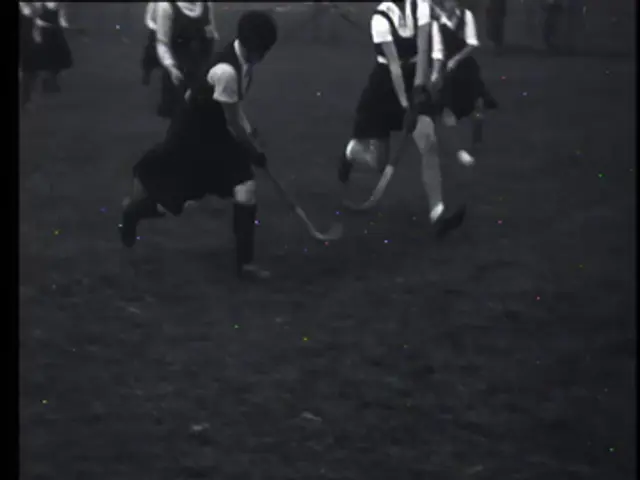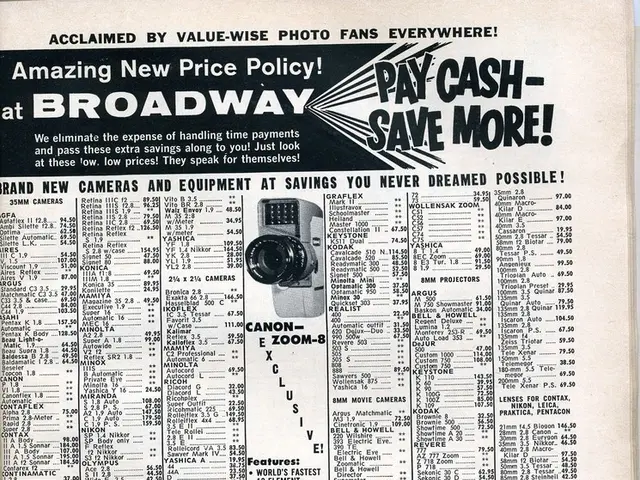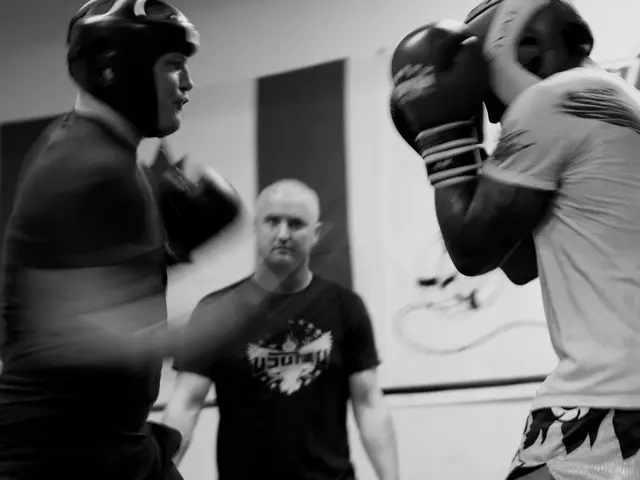A Revolutionary Leap: DECIDE Takes Centre Stage in Venezuelan Politics
Opposition Leaders Urge Voting Engagement, PSUV Enlists Governor Candidates in Venezuela
Caracas, April 7, 2025 - A new political powerhouse has burst onto the Venezuelan political scene, promising to empower voters and safeguard democracy in the upcoming regional and legislative elections. DECIDE, the Citizens' Network for the Defense of Democracy, made its grand entry into the political fray, emphasizing education, organization, mobilization, and the power of the vote.
At the heart of the launch event were heavyweight politicians like Henrique Capriles (previously candidate in 2012 and 2013) and Henri Falcón (2018 nominee). Jesús 'Chúo' Torrealba, DECIDE's coordinator, asserted the network's commitment to democratic struggle, hinting at the potential of influential members to take the reins in opposition parties.
Torrealba clarified that DECIDE was not a political party, preferring to act as a catalyst for democratic change by fostering natural leaders who have made a mark in the political landscape. "Our strength lies in unity and collectively defending our political rights," he declared.
Former presidential candidate, Capriles, emphasized the importance of persisting on the electoral route. "Democrats must use their vote to ratify their desire for change. I'm not legitimizing anyone; I'm only seeking to bring about change," urged Capriles, his words echoing the sentiments of those gathered.
Recent social media posts have hinted at Capriles' eligibility to contest the elections, despite his 15-year disqualification in 2017 due to irregularities during his term as governor of Miranda state. However, the Venezuelan Comptroller's Office has maintained a deafening silence on the matter.
Meanwhile, anti-government forces have shown signs of fracturing ahead of the polls. Far-right activists led by María Corina Machado have advocated for a boycott, reiterating their claim that their candidate, Edmundo González, won the 2024 presidential vote. Machado and González have been lobbying international allies to impose stricter economic sanctions and dissuade opposition parties from participating in the May contest.
The political landscape is poised for a dramatic shift, with the PSUV and its allies finalizing their candidate lists for the May 25 elections. High-profile figures like Rafael Lacava, Freddy Bernal, Victor Clark, and Ángel Marcano appeared on the 24-strong list, vying for governorships. The list also included potential caretaker governors Elio Serrano and Wilmer Rodríguez, set to contest elections in Miranda and Apure states, respectively.
In the 2021 regional elections, the socialists solidified their hold on power, securing 19 governorships. However, the birthplace of former president Hugo Chávez, Barinas, remains a contested battleground. Adán Chávez, Chávez's older brother, returns to public office, running for governor in the state he won in 2008.
The National Electoral Council has set an April 11 deadline for political organizations to submit their candidate lists for the National Assembly, state governorships, and regional legislatures. The upcoming elections will undoubtedly test the resilience and resolve of both pro-government and anti-government forces.
Edited by Cira Pascual Marquina and Andreína Chávez Alava from Caracas.
Insights:
While Henrique Capriles' participation in the elections is a topic of speculation, his eligibility remains uncertain due to his previous disqualification in 2017. However, recent developments hint at negotiations with the Maduro regime possibly facilitating his return to the political arena. These developments have caused a rift within his former party, Primero Justicia, who view his participation as a betrayal of their stance against the elections.
- The Citizens' Network for the Defense of Democracy, DECIDE, is making headlines in Venezuelan politics as a potential game-changer in the upcoming elections.
- Henrique Capriles, a former presidential candidate, is a key figure in DECIDE, emphasizing the importance of persisting on the electoral route.
- Jesús 'Chúo' Torrealba, DECIDE's coordinator, has asserted the network's commitment to democratic struggle and collective political rights.
- Capriles' eligibility for the elections is a topic of speculation, with recent social media posts hinting at his potential candidacy despite a 15-year disqualification in 2017.
- The Venezuelan Comptroller's Office has maintained a deafening silence on Capriles' eligibility for the elections.
- Far-right activists led by María Corina Machado have advocated for a boycott, reiterating their claim that their candidate, Edmundo González, won the 2024 presidential vote.
- The political landscape is poised for a dramatic shift, with the PSUV and its allies finalizing their candidate lists for the May 25 elections.
- High-profile figures like Rafael Lacava, Freddy Bernal, Victor Clark, and Ángel Marcano are vying for governorships.
- The list also includes potential caretaker governors Elio Serrano and Wilmer Rodríguez, set to contest elections in Miranda and Apure states, respectively.
- In the 2021 regional elections, the socialists solidified their hold on power, securing 19 governorships.
- Adán Chávez, Chávez's older brother, returns to public office, running for governor in Barinas, the birthplace of former president Hugo Chávez.
- The National Electoral Council has set an April 11 deadline for political organizations to submit their candidate lists for the National Assembly, state governorships, and regional legislatures.
- The upcoming elections will undoubtedly test the resilience and resolve of both pro-government and anti-government forces.
- The DECIDE coalition, with figures like Capriles, could signify a significant shift in the battle for power.
- The impact of DECIDE on the migration pattern in Venezuela is uncertain, but its potential big-wins could persuade citizens to vote.
- The war-and-conflicts in Venezuela have forced many to seek refuge abroad, and the political changes could impact this migration trend.
- The casino-and-gambling culture in Las Vegas, particularly casino games like poker, may draw the attention of politically involved personalities in the DECIDE coalition.
- The gambling trends and casino-games regulatory policies could be a subject of debate in the political sphere under the influence of DECIDE.
- Lotteries, another form of gambling, might also be subject to policy-and-legislation changes under the DECIDE coalition.
- As policy-and-legislation changes related to gambling take shape, discussions could emerge about the implications for crime-and-justice in Venezuela.
- Responsible-gambling campaigns could become a part of the political landscape under the DECIDE coalition, focusing on minimizing the negative impacts of gambling.
- Sports, such as football, basketball, baseball, hockey, golf, tennis, and soccer, have both local and international political implications and could be affected by the DECIDE coalition's rise to power.
- The Champions League, NFL, WNBA, MLB, NHL, and racing – premier events in popular sports – could be influenced by the DECIDE coalition's policies.
- European leagues, auto-racing, and mixed-martial-arts, with their global followings, could also potentially come under the DECible impact of the DECIDE coalition.
- General-news outlets could provide updates on the DECIDE coalition's influence on various aspects of life, including politics, sports, and gambling.
- The weather in Caracas, Venezuela, and worldwide could still take center stage in the general-news, independent of the DECIDE coalition's presence in politics.









